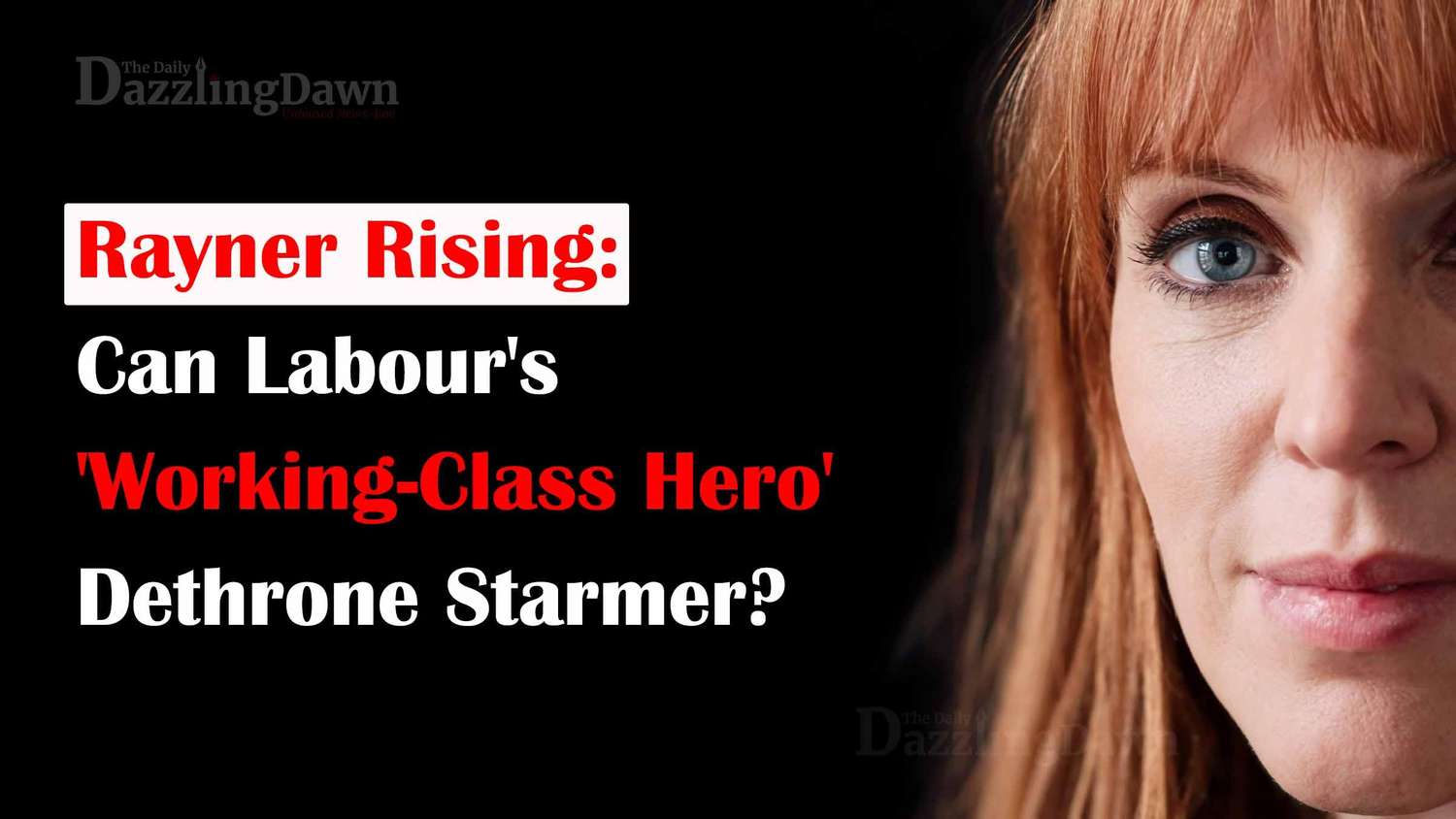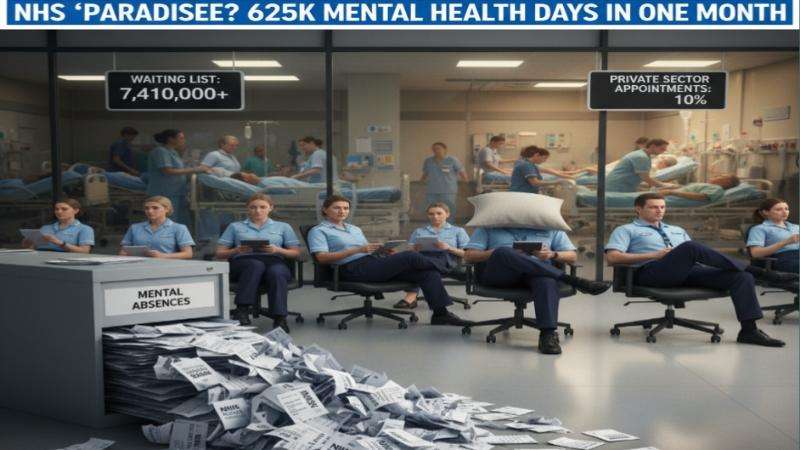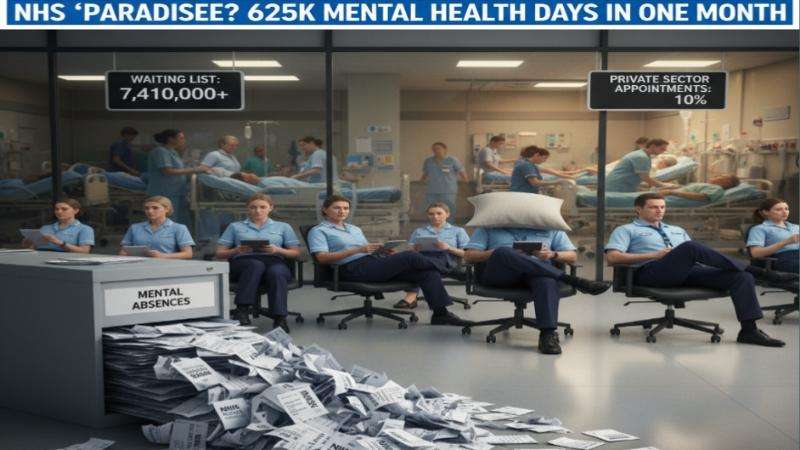A staggering new low has been reached within the National Health Service, with recent government figures revealing that NHS staff claimed over 625,000 sick days for mental health reasons in a single month. This unprecedented spike has ignited a furious debate over the working culture within the NHS, with critics suggesting it has become a "lazy staff paradise" where entry guarantees an "ultimate chance to get retired from the job without any hassle," Daily Dazzling Dawn understands.
The data for June shows that anxiety, stress, depression, and other psychiatric reasons accounted for a full one-third of all sickness absence across the health service, marking the highest share since the peak of the Covid lockdowns. Mental health-related sick days surged to 625,834, representing a 13 percent increase compared to the same month last year. In the first half of this year alone, the total number of mental health-related absences has ballooned to 3.6 million.
Mental health is now consistently cited as the main reason for sickness leave for NHS workers, a trend that is rapidly worsening. When the NHS first began categorizing sick days by type in 2019, the monthly average for mental health days stood at around 400,000.
Compounding concerns about potential abuse, the highest percentage of mental health-related sick days are being logged by "back office" personnel—staff working in HR, finance, communications, legal, and other administrative and managerial roles, far removed from frontline patient care. So-called NHS infrastructure staff were responsible for 15 percent of all sick days in June. Most notably, over 40 percent of the sick days taken by managers and senior managers were attributed to mental health concerns.
Elliot Keck of the TaxPayers' Alliance sharply criticized the findings, stating that despite "larger and larger sums" being poured into the health service, "rising sickness rates mean fewer staff on the frontlines and more pressure on those left behind." He demanded that the government "get serious about tackling the mismanagement that is driving staff to burnout and clamping down on absenteeism related to mental health."
Meanwhile, the British Medical Association acknowledged the gravity of the figures, with a spokesman calling them "dreadful but sadly not surprising." They attributed the crisis to a workforce "struggling for years to look after patients in a health system that is under unrelenting, severe pressure," citing "rising patient demand, chronic understaffing, and inflexible and unsupportive working arrangements" as the fuel for the worrying rise of mental health-related illness among doctors.
The crisis in staffing comes as the NHS waiting list has soared to 7.41 million, despite a significant £25 billion cash injection. The government’s attempts to address the backlog are visible through the rising reliance on the private sector, which now carries out one in every ten NHS appointments and operations. Furthermore, the strain on the public service is pushing patients overseas, with over half a million British patients leaving the UK for healthcare abroad last year—a staggering 50 percent increase in just two years. NHS England has been contacted for comment regarding the shocking figures.







.svg)


